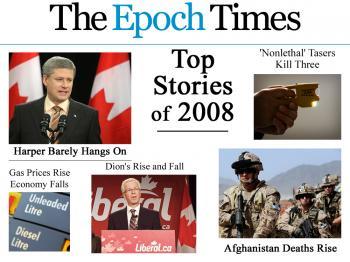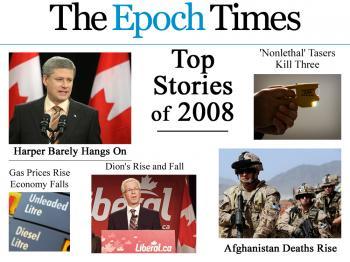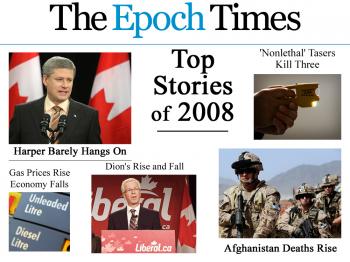As we prepare to ring in 2009, here is a look back at some of the top news items that defined 2008 in Canada.
Conservative Minority, Take Two
Canada’s 40th election was a surprise we all saw coming. Prime Minister Stephen Harper called the election despite his fixed-date election legislation, likely hoping for a majority before the economy tanked.
But voters weren’t too interested and turnout dropped to a record low of 59.1 per cent. For many Canadians, the struggle between two charisma-shy policy wonks (Stephane Dion and Harper) just couldn’t match the historic U.S. election.




